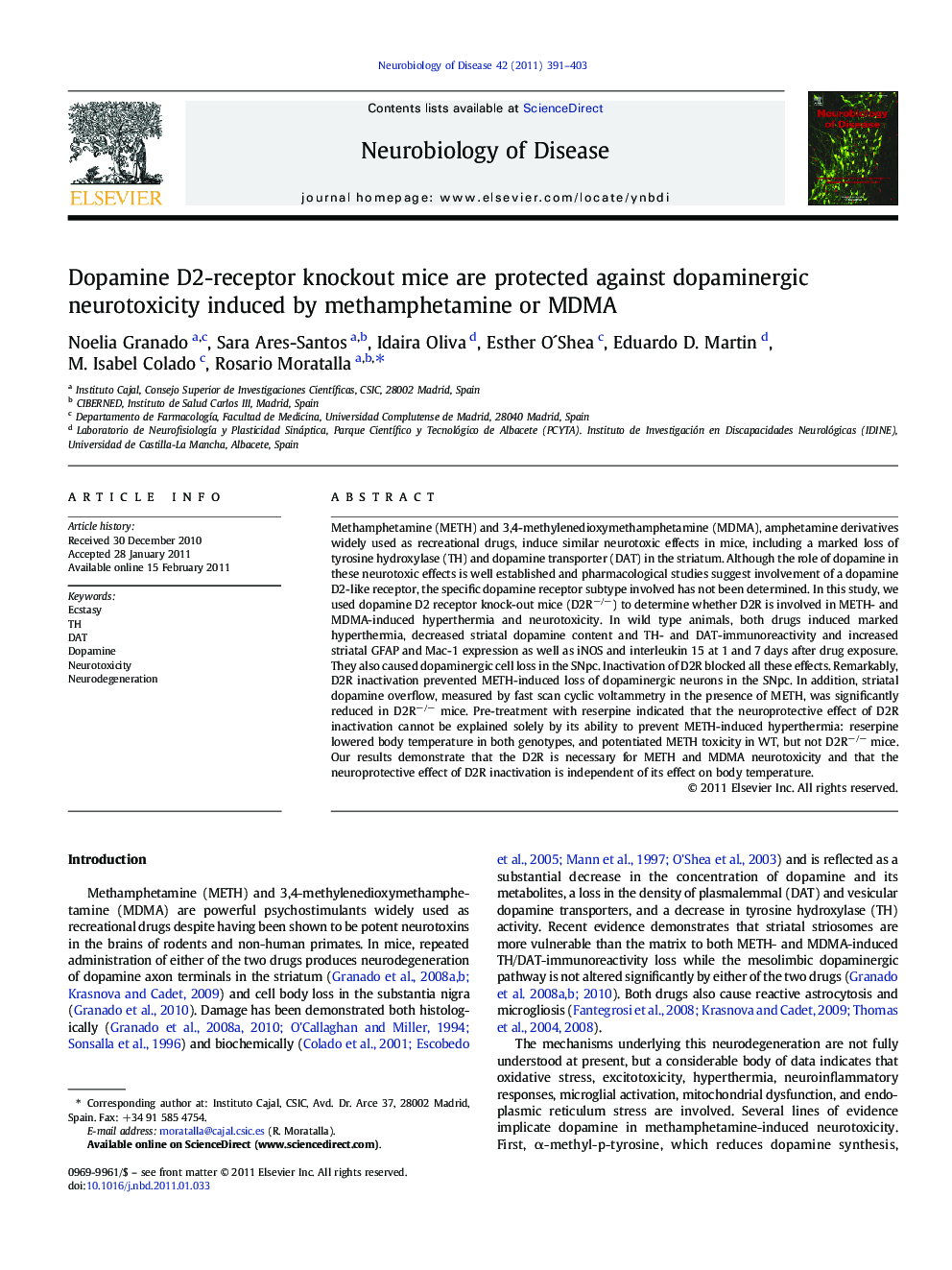| Article ID | Journal | Published Year | Pages | File Type |
|---|---|---|---|---|
| 6022856 | Neurobiology of Disease | 2011 | 13 Pages |
Methamphetamine (METH) and 3,4-methylenedioxymethamphetamine (MDMA), amphetamine derivatives widely used as recreational drugs, induce similar neurotoxic effects in mice, including a marked loss of tyrosine hydroxylase (TH) and dopamine transporter (DAT) in the striatum. Although the role of dopamine in these neurotoxic effects is well established and pharmacological studies suggest involvement of a dopamine D2-like receptor, the specific dopamine receptor subtype involved has not been determined. In this study, we used dopamine D2 receptor knock-out mice (D2R−/−) to determine whether D2R is involved in METH- and MDMA-induced hyperthermia and neurotoxicity. In wild type animals, both drugs induced marked hyperthermia, decreased striatal dopamine content and TH- and DAT-immunoreactivity and increased striatal GFAP and Mac-1 expression as well as iNOS and interleukin 15 at 1 and 7 days after drug exposure. They also caused dopaminergic cell loss in the SNpc. Inactivation of D2R blocked all these effects. Remarkably, D2R inactivation prevented METH-induced loss of dopaminergic neurons in the SNpc. In addition, striatal dopamine overflow, measured by fast scan cyclic voltammetry in the presence of METH, was significantly reduced in D2R−/− mice. Pre-treatment with reserpine indicated that the neuroprotective effect of D2R inactivation cannot be explained solely by its ability to prevent METH-induced hyperthermia: reserpine lowered body temperature in both genotypes, and potentiated METH toxicity in WT, but not D2R−/− mice. Our results demonstrate that the D2R is necessary for METH and MDMA neurotoxicity and that the neuroprotective effect of D2R inactivation is independent of its effect on body temperature.
Research highlights►DA D2R−/− mice are resistant to dopaminergic neurotoxicity induced by METH and MDMA. ►Inactivation of D2R prevent TH and DAT fiber loss induced by METH or MDMA. ►D2R is required for the activation of glial cells in the striatum. ►Inactivation of D2R protects against dopaminergic neuron loss induced by METH or MDMA. ►Inactivation of D2R decreases dopamine overflow in the striatum.
